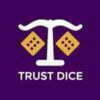One of my greatest fears in a casino is playing over a jackpot, especially one that has a big payout like a royal flush. Does this horror story happen often? By the way, I normally play in Atlantic City. Thomas R.
No cause for concern, Thomas. The New Jersey Casino Control Commission requires that all machines lock-up when the top award is hit. So if you are dealt a natural royal flush, you won’t screw up and chuck those terrific cards. Which is a good thing because casinos offer free booze alongside gambling.
Additionally, all reel slot machines lock up when awards are higher than $1,200. Not because the casino wants to avoid payment and give you a blooper award instead, but because it’s an IRS regulation. Uncle Sam wants his piece of the win as well.
Is it true that the minimum required payout on slot machines in Atlantic City is 83%? Millie L.
It depends on the type of slot machine that you are playing, Millie. For a pull handle slot machine, yes, it must be programmed to return “at least” 83%. But for a game of skill, like video poker, the return must be two percent higher. Why the additional two percent? Because characteristically recreational players never bother to include skill in video poker, resulting in mistakes, creating 2-4% lower paybacks. If a video poker machine was programmed to return just 83% and had a non Deal Me In reader playing it, the return would be less than 83%. Hence, games of skill need to return a higher percentage.
In past columns you have informed your readers how to identify a good jacks-or-better video poker machine from a poor one. I exclusively play Deuces Wild. Is there a way of determining one machine from another? Jeff N.
It is very simple to tell the difference between an excellent Deuces Wild paytable and an inferior one. Simply look at what you are paid for four-of-a-kind with one coin inserted. If the machine returns 5 coins, you are on a full-pay machine. By playing perfect basic strategy, your return can be 100.76%. If the video machine returns just 4 coins, your yield will be considerably lower-94.34%. It makes sense, Jeff, to always shop for value and play a premium paytable.
But also note, Jeff, theoretically, the machine is pre-programmed to return $100.76 for every hundred dollars inserted if you implore “optimum play”-that is, play every hand perfectly. Plus, “theoretically” means over the long haul, not each and every time your posterior is sitting in front of the machine.
I have been told that there is no way of telling how much the machines return to the players on the Indian reservations in Michigan. Nor have I ever seen it advertised anywhere. Is this true? Jenny G.
Yes, to a point, Jenny, that statement is correct. The Indian casinos of Michigan are not required by law to release information on their slot machine percentage paybacks. But, according to the Michigan Racing Commission, which is responsible for regulating the tribes’ slot machines, the casinos must meet the same standards for machines as in New Jersey or Nevada. In New Jersey the minimum return is 83%; Nevada it’s 75%. Thus, Michigan Indian casinos must return at least 75% in order to comply with the law.
But it is competition or a lack of it, not laws, that really dictates the return to patrons. All casinos in Nevada and Atlantic City return well over 90% because the competition is fierce for your greenback. The same can’t be said in Michigan where the Indian casinos are spread out all over the state. Let’s hope, Jenny, with the three additional casinos coming on-line in Detroit, casinos up north will start advertising payoff returns to keep current patronage.



















